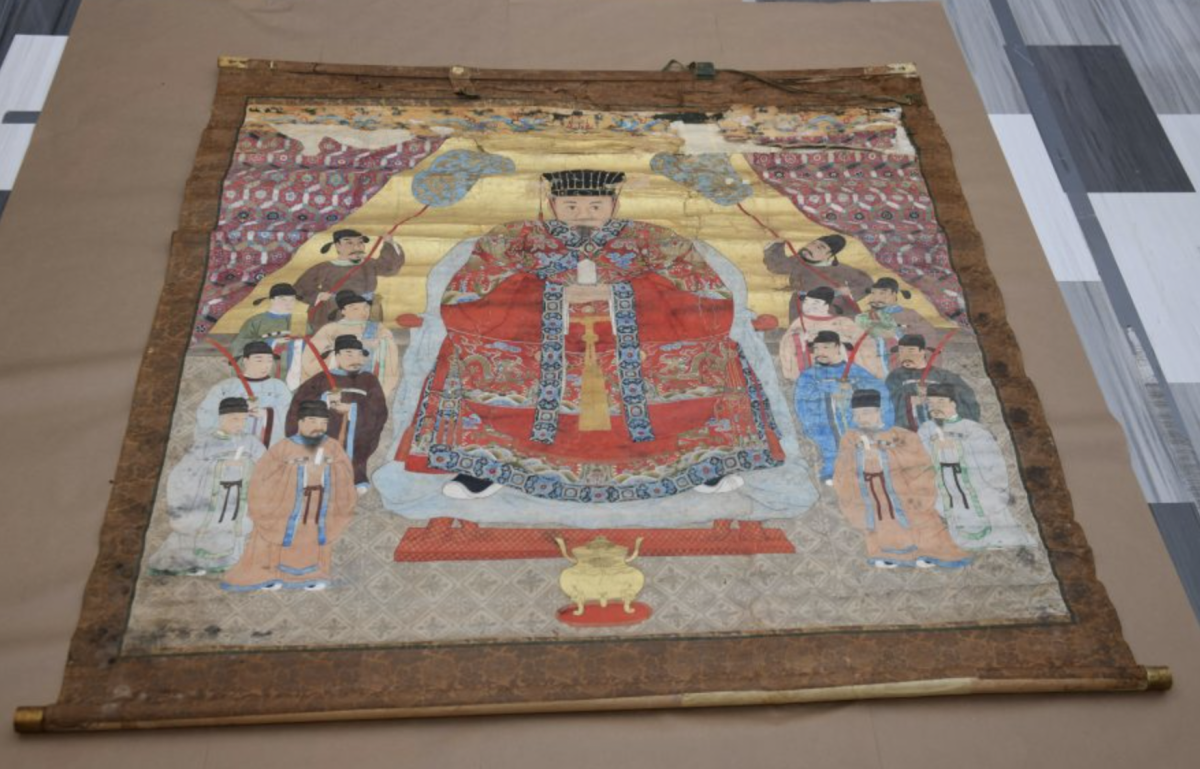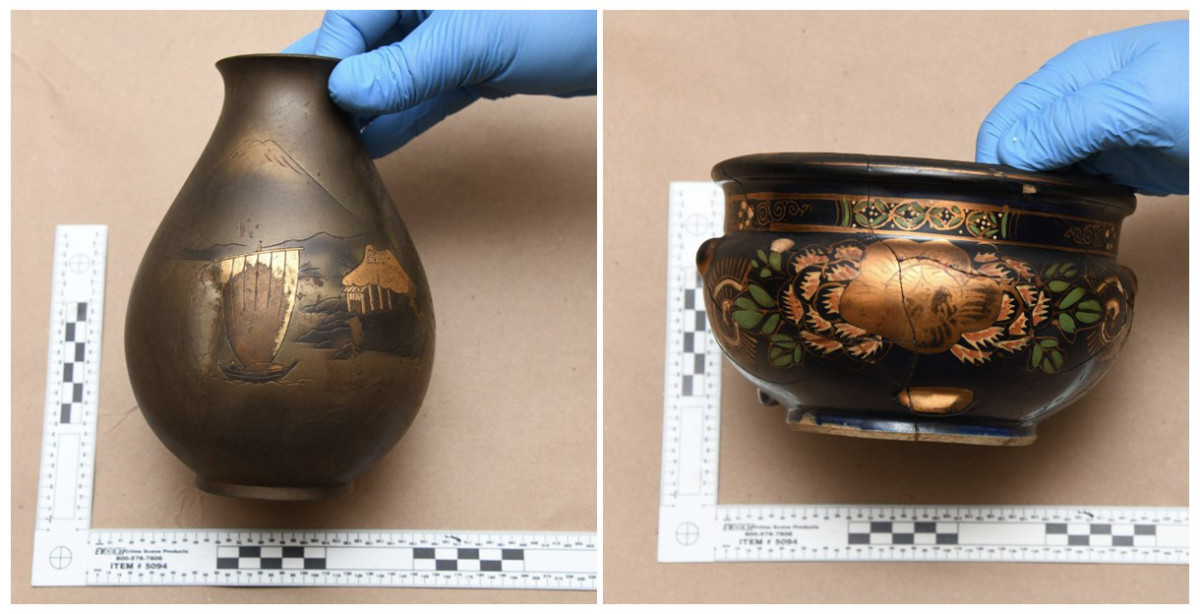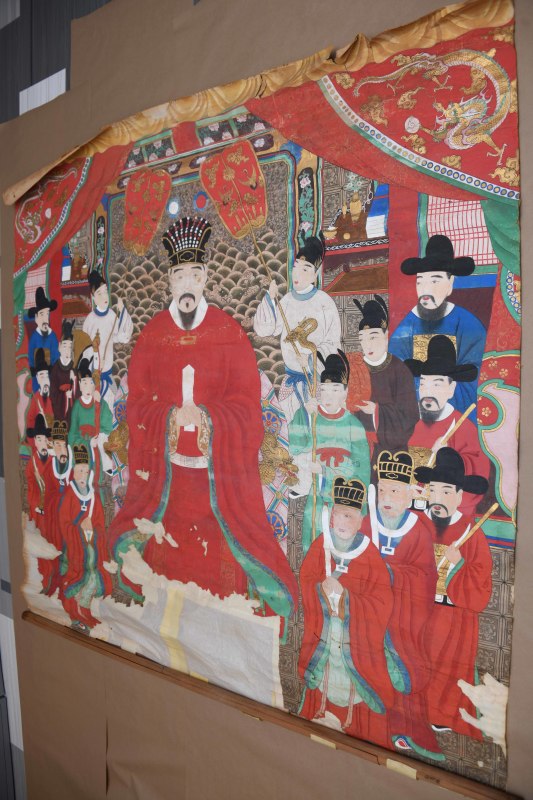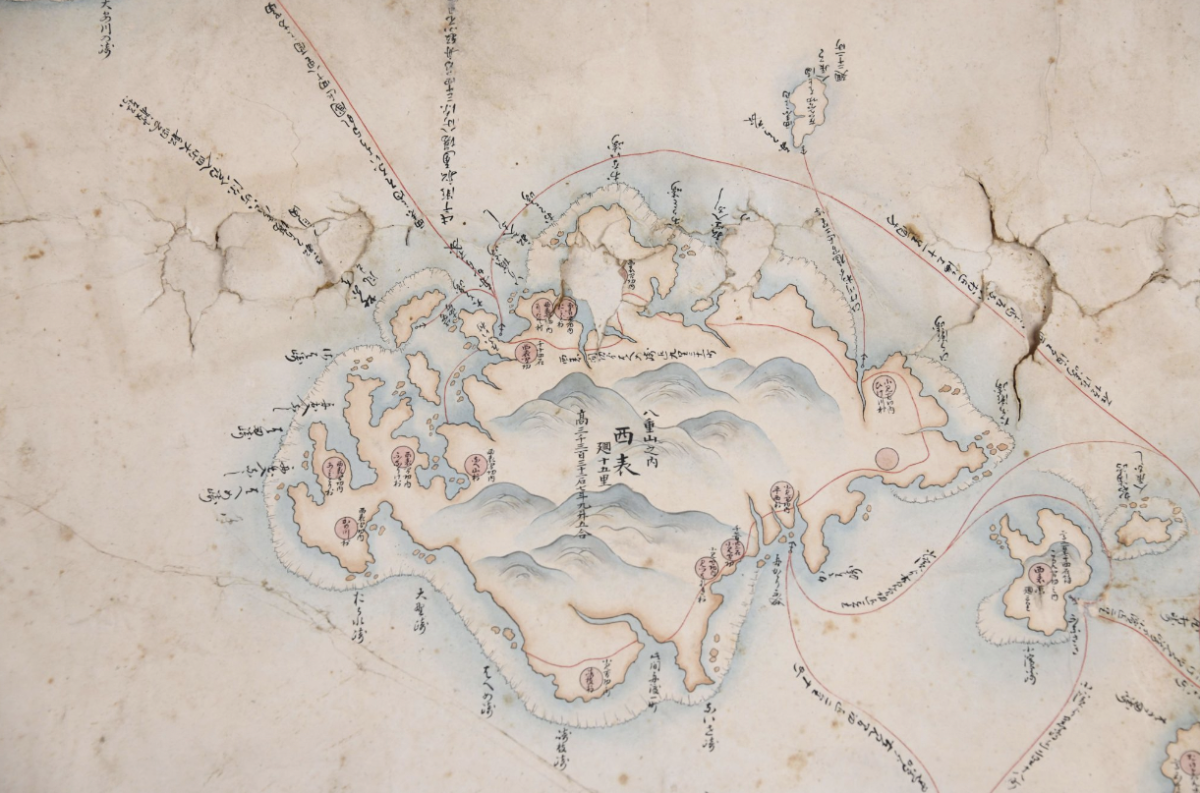When a family in Boston went through their late father’s belongings, they turned up something suspicious. So suspicious, in fact, that they called the FBI.
The family had found what looked like Asian antiques, including scrolls, pottery, and portraits. Recognizing them as very old and potentially valuable, the family did some research—and found the scrolls in the FBI’s National Stolen Art File. That prompted them to contact the FBI Boston Field Office, where the case went to Special Agent Geoffrey J. Kelly of the Art Crime Team. The investigation, which started in January of 2023, determined that 22 artifacts had been looted from Okinawa, an island off Japan, in the 1940s.

The FBI
A typewritten letter among the looted artifacts said they were collected in Okinawa at the end of World War II. The family’s father had served in World War II but not in the Pacific Theater. The artifacts had probably been taken during the Battle of Okinawa, which started on April 1, 1945, and lasted until June 22 of the same year. It was one of the last major battles of World War II, setting the stage for an Allied invasion of mainland Japan. It was also one of the bloodiest battles, with casualties estimated at more than 49,000 Americans, 110,000 Japanese forces, and about 150,000 Okinawan civilians. The United States had control over Okinawa until the island was returned to Japan in 1972. There is still a significant U.S. military presence in Okinawa.

The FBI
The FBI sent the 22 objects to the National Museum of Asian Art, part of the Smithsonian Institution in Washington, D.C., where experts examined and authenticated them. The scrolls were unrolled, which Agent Kelly called “…an exciting moment when…you just witness history, and you witness something that hasn’t been seen by many people in a very long time.”

The FBI
The scrolls, which dated to the 18th and 19th centuries, included vivid portraits of Okinawan royalty. There was also a hand-drawn 19th-century map of the island. At the time, Okinawa was part of the Ryukyu Kingdom, which consisted of a chain of islands southwest of Japan. The kingdom was incorporated into the Japanese government in 1609 but retained its own monarchy and trade relations. Japan annexed Okinawa along with the Ryukyu islands in 1879.

The FBI
To this day, Okinawa retains a cultural identity distinct from mainland Japan, making its historical and cultural artifacts especially important. The 22 artifacts were returned to Okinawa on March 15, 2024.
You May Also Like:
Understanding Japanese Woodblock Prints
Iconic Anime Sells for $2.1 Million
British Couple Discovers Buried Treasure Under Kitchen Floor








